Election Inequality And The Unheard Voice
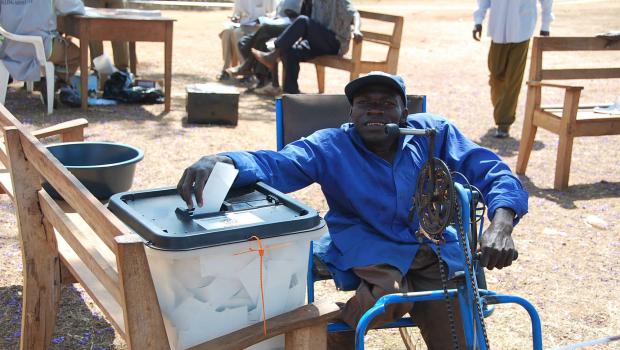
In Uganda, where the constitution enshrines the right to vote for all citizens above the age of 18, persons with disabilities (PWDs) continue to face significant barriers that hinder their full participation in the electoral process. Despite legal provisions aimed at ensuring equality, the reality on the ground tells a different story.
The Ugandan constitution, under Article 59, guarantees every citizen the right to vote, while Article 21 emphasizes equality before the law. Furthermore, the Persons with Disabilities Act of 2020 underscores the government’s obligation to provide accessible voting procedures, including the use of sign language interpreters, Braille ballot papers, and assistive devices. However, many PWDs are left out of the electoral process due to a lack of these essential accommodations.
During election periods, individuals with visual impairments often find themselves unable to vote independently because Braille ballot papers are not provided. Similarly, those with hearing impairments face challenges due to the absence of sign language interpreters during crucial moments like vote counting.
The statistics paint a stark picture: Uganda, with a population of approximately 45.9 million as of 2024, has about 4.5 million people living with disabilities, according to the Uganda Bureau of Statistics Census Report (2016). A staggering 80% of these individuals reside in rural areas, where access to assistive technology, transportation, and other necessary resources is limited.
The right to vote is critical to the democratic process and the United Nations Convention on the rights of persons with disabilities (UNCRPD) underscores the equal rights of people with disabilities to participate in political life.
PWDs community
The Person With Disability (PWD)Act 2020 defines disability as a substantial functional limitation of a person’s daily life activities caused by physical, mental or sensory impairment and environmental barriers resulting in limited participation in society on equal basis with others.
Schedule 3 of the persons with Disability Act 2020 laws of Uganda, disability persons/impairments include,
a) physical Disability caused by cerebral palsy,amputation of a limb, paralysis or deforming.
B) Hearing disability including deafness and hard of hearing ability.
C) Visual disability including blindness and low vision disability.
d)Deaf and blind disability.
E) mental disability including psychiatric disability and learning disability.
G) little people
h) Albinism
I) multiple disability.
voters Living with Physical impairment
Jastine Nakate, a representative for PWDs in Bulumaji Cell, Nyenga Division, Buikwe District, shares her personal struggles with the electoral process. She highlights the lack of accessibility, representation, and support, which prevents PWDs from fully participating in elections. “We are often used during election periods and forgotten once it ends,” Nakate laments.
PWDs also face physical challenges, particularly those who use wheelchairs or have mobility impairments. They are often pushed aside during election events and subjected to unfair treatment, including exposure to tear gas during campaign strikes. Additionally, the lack of accessible transportation to polling stations further complicates their ability to vote.
Despite these challenges, the government has made some efforts to address these issues. The Persons with Disabilities Act 2006 and the 2020 amendments obligate the government to ensure that voting procedures and materials are appropriate and accessible for PWDs. However, as Nakate points out, these legal provisions often fail to translate into practical assistance on the ground.
The experiences of PWDs like Nakate is one of the many silent votes thus explaining the urgent need for more inclusive electoral processes in Uganda.
Kibirige Edward, Chairperson for People with Disabilities (PWDs) in Kitooro, Kibuli Parish,Kampala District, has voiced significant concerns about the barriers PWDs face during Uganda’s electoral process. His firsthand experiences reveal systemic issues that hinder their full participation in elections, from local councils to the presidency.
Accessibility issues further complicate the voting process. On rainy days, those with physical impairments struggle with the muddy terrain. “We often have to use our hands to navigate through challenging conditions, which is both physically exhausting and demoralizing,” Kibirige explains. This lack of accessibility can severely affect the ability of PWDs to reach and cast their votes.
Kibirige also critiques the leadership representing PWDs, arguing that it lacks genuine understanding. “How can a Minister for PWDs, who does not experience disability firsthand understand our daily struggles and challenges? It is crucial for our leaders to genuinely empathize with and understand our needs,” he argues. This disconnect highlights the need for leaders who can truly relate to and advocate for the needs of PWDs.
To address these issues, Kibirige calls for extensive educational initiatives. “We need comprehensive training for polling station staff and police officials to ensure they are equipped to assist PWDs effectively,” he says. Additionally, he advocates for increasing the number of polling stations and creating some specifically for PWDs. “More polling stations and dedicated ones for PWDs would ensure a more supportive and accessible voting environment,” Kibirige suggests.
In Uganda, the electoral process presents daunting challenges for people living with disabilities (PWDs). Miiro Michael, an advocate and a person with a physical impairment, highlights how systemic neglect and inadequate support marginalize PWDs, severely impacting their ability to participate fully in elections.
One of the primary issues is the unrealistic expectation that a single individual can oversee election affairs for all PWDs across the nation. “The Electoral Commission has one person in- charge of the Special Interest Group, how can he effectively manage the needs of millions of PWDs spread across Uganda?”,” Miiro questions”. This one-person responsibility is not only impractical but also fails to address the diverse needs of the disabled population.
Access to crucial voter registration information is another significant barrier. For PWDs, obtaining this information is fraught with difficulties. Miiro points out that voter registration details are often located in inaccessible places, and there is a glaring absence of sign language interpreters for those with hearing impairments. “Many PWDs are left uncertain about their registration status because they can’t access the information they need,” he explains.
Local Council leaders, who are supposed to assist PWDs, often lack the necessary knowledge about the specific voting needs of disabled individuals. Miiro describes this gap in expertise as a major hindrance. “These leaders should be providing support, but their lack of understanding makes them ineffective,” he says.
The Electoral Commission’s failure to allocate a special budget for educating PWDs about the voting process exacerbates the problem. “General public announcements are not sufficient. They don’t address the specific needs of PWDs. Without targeted education, many PWDs remain uninformed about how to exercise their voting rights,” Miiro asserts. This lack of specialized outreach prevents many PWDs from participating effectively in elections.
On voting days, the obstacles multiply. PWDs face numerous difficulties, including the lack of guidance and accessibility provisions from the Electoral Commission. There are no assistive devices available, and voters who crawl often can’t reach the voting basin. Additionally, there are no trained officials to assist them,” Miiro details. The inadequacy of election officials trained to support PWDs adds another layer of difficulty.
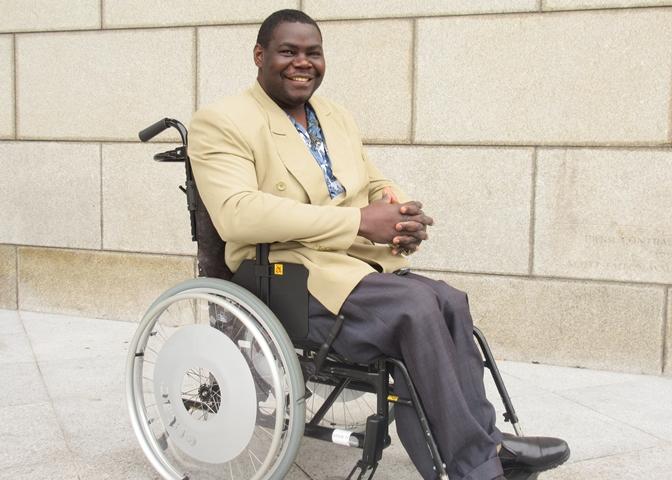
Bosco Ngabirano, the Senior Election Officer in charge of Special Interest Groups at the Electoral Commission, states that the Electoral Commission is committed to making polling stations more accessible for PWDs by the 2026 general elections. “We’ve trained our staff to ensure accessibility, and we plan to update the national voters’ register to include PWDs who may not be able to visit registration centers,” he adds. “This will allow them to participate fully in both the electoral college and general elections.”
Ngabirano also highlights the Commission’s efforts in voter education, particularly for PWDs. “Since 2022, we’ve conducted extensive voter education campaigns, visiting schools, appearing on television and radio, and working closely with PWD organizations,” he notes. This outreach aims to ensure that PWDs are well-informed and prepared to participate in the upcoming general elections.
Kyozira Esther, the CEO of the National Union for Persons with Disabilities (NUDIPU), during Uganda’s electoral process. Despite ongoing advocacy efforts, significant barriers remain that hinder PWDs from fully participating in elections.
“One of the biggest challenges is the physical inaccessibility of many polling stations,” Kyozira explains. “We have engaged with the Electoral Commission (EC) multiple times to address these issues, but progress has been slow. Many polling stations are still not accessible to all PWDs.”
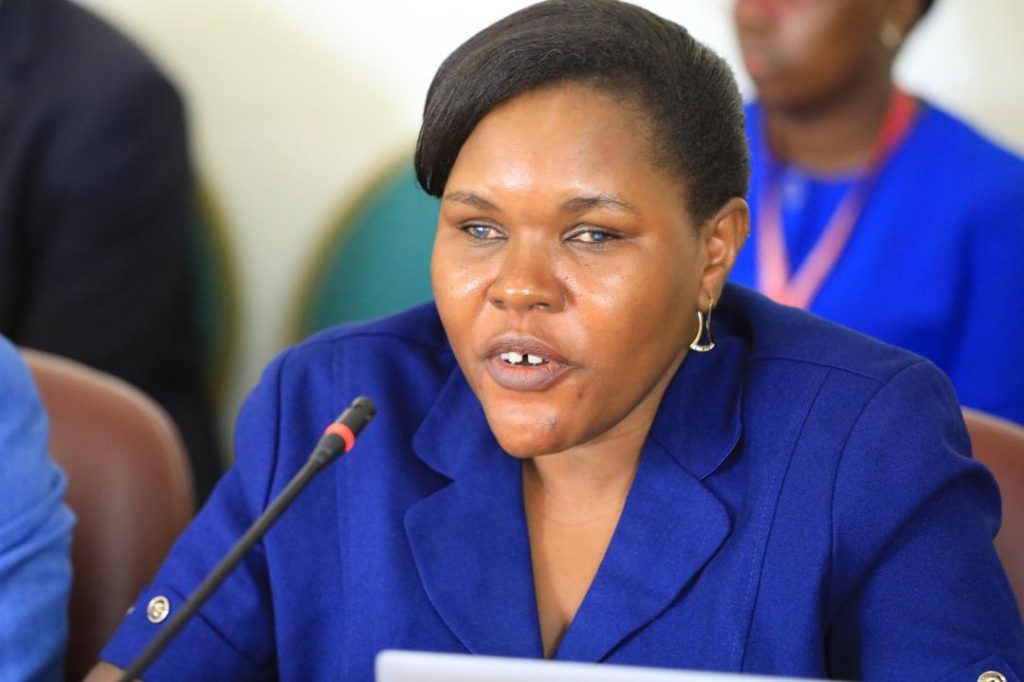
Voters Living with Hearing impairment
Ogwal Alex, a teacher, sign language instructor, and advocate for those with hearing impairments, has opened up about the significant obstacles he and others face during Uganda’s elections. His personal experiences shed light on the systemic challenges that hinder full participation for individuals with hearing impairment.
Ogwal recounts a particularly frustrating experience from the 2021 elections. “I voted once and that was the president only , and it was only possible with the help of my father. He picked me up and took me to the polling station. Before that, I had gone by myself, but I didn’t understand what was happening and went back home. My father’s assistance was crucial for me to vote the following day,” he says. This incident highlights a critical gap in support for voters with hearing impairments.
A key issue Ogwal encountered was the lack of sign language interpreters at polling stations. “When I tried to ask how to vote, a police officer told me that someone like me couldn’t vote. I felt so embarrassed; this was on the first day I tried to vote,” Ogwal recalls. His experience points to a broader issue: the absence of necessary accommodations for individuals with hearing impairment at crucial moments of the electoral process.
The challenges extend beyond the polling station. Ogwal explains that election campaigns and processes often leave people with hearing impairments out of the loop. “During campaigns, someone is speaking, but you don’t know what’s going on or what they are saying. I rely on social media to get information about the election process,” he says. This dependence on social media underscores the failure of traditional campaign methods to reach all voters effectively.
Ogwal also notes the difficulties with voting materials. “The ballot papers and voting materials were hard to understand since I rely more on visual cues. It was tough to distinguish between political parties. I could only vote for the president because I recognized his party by its color,” he explains. This lack of accessible voting materials further complicates the voting process for individuals with hearing impairments.
Election officials often seem unaware of the needs of these voters. “They overlooked me and didn’t provide any accommodation. Communicating with election officers, volunteers, and others throughout the process was a major challenge. Even television broadcasts about the elections lack sign language interpreters, which makes it hard for me to follow the information,” Ogwal notes. His experience illustrates a broader issue of inadequate training and awareness among election officials.
In response to these challenges, Ogwal calls for significant reforms. “The government should allocate a budget specifically for persons with disabilities and ensure that election officials are trained in basic sign language,” he suggests. Engaging directly with individuals with hearing impairments to understand their needs and improving the accessibility of information and materials are crucial steps toward a more inclusive electoral process.
Ogwarl Alex’s story underscores the urgent need for systemic changes to ensure that the electoral process is accessible to all Ugandans, regardless of their hearing ability. Addressing these barriers is essential for upholding democratic rights and fostering inclusivity in the electoral system.
In our engagement with Bosco Ngabirano, the Senior Election Officer in charge of Special Interest Groups at the Electoral Commission,says “One notable development for the 2024 elections is the recruitment of sign language interpreters at the district level, a step forward from previous elections where this service was not provided”,. “While we can’t place sign language interpreters at every polling station due to funding constraints, we are making strides by having them available at the district level,” Ngabirano assures.
Voters with hearing impairment face their own set of challenges, particularly when sign language proficiency is lacking among election staff. “We’ve advocated for the employment of sign language interpreters at polling stations,” says Kyozira. “Unfortunately, the government’s concerns over costs have limited the implementation. This has resulted in misunderstandings and, in some cases, disenfranchisement.”
Kyozira also highlights the broader issue of exclusion during election campaigns. “PWDs are often left out of the campaign process,” she says. “There are no sign language interpreters at presidential campaigns or local council meetings, and campaigns. This means that many PWDs don’t have access to the information they need to make informed voting decisions.”
The Uganda Police Force is actively working to bridge communication gaps with deaf individuals and those living with hearing impairments. According to spokesperson Rusoke Kituuma, the police are making deliberate efforts to improve accessibility for Persons with Disabilities (PWDs). “We are committed to closing this communication gap,” Rusoke states.
The police regularly remind their staff to be attentive to the needs of PWDs, especially those with hearing impairments. “We are actively training more officers in sign language,” Rusoke explains. “Several trained personnel are already available across various stations.” Despite these efforts, challenges remain in ensuring that all officers are adequately trained and that this training translates effectively into practice.
Voters Living with Visual impairments
Peter Ochieng, the Councilor for Persons with Disabilities in Buyembe Parish, Bukatube, Luube Village, Mayuge District, and Secretary for the Luube Village Blind Group, shared critical insights into the challenges faced by the visually impaired during Uganda’s elections. His experiences highlight significant barriers that hinder the full participation of this group in the electoral process.
Ochieng, who is both physically disabled and visually impaired, provides a stark overview of the situation. “As someone who understands the difficulties faced by visually impaired individuals, I can tell you that in Mayuge District alone, there are over 300 of us,” he explains. This large number underscores the scale of the issue and the need for urgent reforms.
“Visually impaired voters have no access to Braille materials,there are no assistive devices. The visually impaired arrive at these stations knowing they need to vote but often have no idea what the candidates look like or which symbol represents whom on the ballot paper. They end up voting without understanding which candidate their vote supports,” Ochieng notes. This lack of accessible information makes it extremely difficult for visually impaired individuals to make informed choices.
Another pressing issue is the reliance on minors to assist visually impaired voters. “Many of us are accompanied by our children, who are often too young to fully understand the voting process. Sometimes, these children might end up voting for a candidate different from what their parents prefer. This is a common problem on voting day,” Ochieng says. The unintended consequences of this reliance reveal how critical it is to have better support systems in place.
Muyingo Charles, Vice Chairperson of the Luubu Blind Village, shares his perspective as a visually impaired resident. “In our village, we have 36 visually impaired individuals. While the registration process goes smoothly, the campaigning period is marked by empty promises. Candidates might promise us things like motorbikes, but these promises are never fulfilled because we cannot use them,” Charles explains. This disparity highlights the gap between campaign promises and actual support for visually impaired individuals.
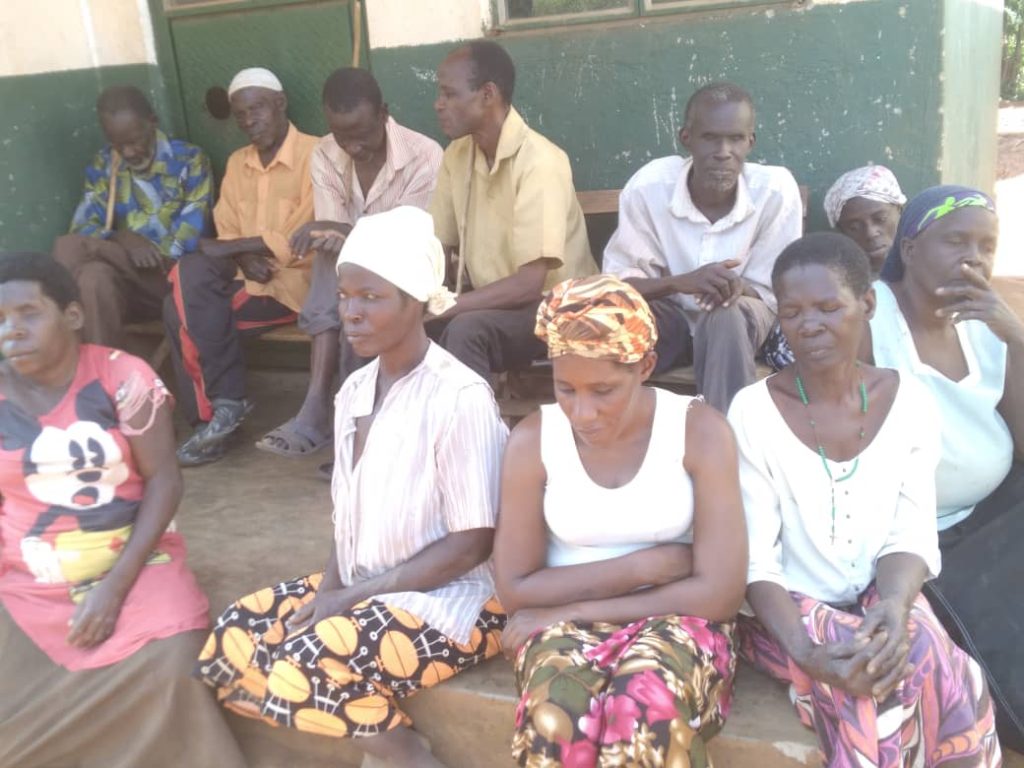
Charles also discusses the dangers faced on voting days. “We often depend on our children to assist us at polling centers, but these children can face intimidation and are sometimes manipulated to make choices different from ours. This is both unsafe and undermines our ability to vote freely,” he says. This situation further complicates the voting process and exposes the need for more secure and inclusive voting methods.
To address these issues, Charles advocates for technological solutions. “I suggest the government provide computers designed specifically for visually impaired voters. These computers could allow us to cast our votes by pressing a button, with the vote then printed on the ballot paper, not in braille. This would help us vote freely and safely, avoiding the intimidation we currently face,” he proposes.
Ochieng echoes this call for better planning and sensitization. “The government must ensure that visually impaired individuals can fully and freely participate in elections. It is their mandate to support us in exercising our voting rights,” he emphasizes.
The stories of Peter Ochieng and Muyingo Charles reveal systemic barriers that hinder the participation of visually impaired individuals in Uganda’s electoral process. Addressing these issues through improved infrastructure, better support systems, and technological innovations is essential for ensuring that all Ugandans, regardless of their visual ability, can exercise their democratic rights effectively and safely.
A source within the Commission, who wished to remain anonymous due to the sensitive nature of the information, disclosed that when the budget for PWDs was presented to parliament, it was reviewed and ultimately rejected. “Parliament said it couldn’t allocate funds for disabilities,” the source explained. This decision was made even though PWDs have representatives in parliament who were not given the opportunity to ensure these ideas were implemented.
The insider revealed that a budget had been allocated for Braille ballot papers, with 300 ballots printed specifically for PWD voters. However, only two of these ballots were actually used during the electoral process. “The other 298 ballots were never used—not because the voters didn’t know how to use them, but because they preferred to use helpers,” the source stated. These helpers, paid by the Electoral Commission, provide a sense of ease for PWD voters, but the situation is more complex. “These weren’t just ordinary PWD voters, but stakeholders who pretend to advocate for the PWD community,” the insider noted, highlighting an underlying issue of electoral monetization.
In one of the stakeholders’ meetings, which included members of the Electoral Commission, it was decided that the use of Braille ballot papers would largely be ignored. The justification was that the helpers, who are seen as breadwinners by the PWD voters, were already being compensated by the Electoral Commission. However, the insider pointed out, “The money intended for these helpers doesn’t reach them. Instead, it’s utilized by the PWD stakeholders, leaving ordinary PWD voters in the villages without the support they need.”
Ngabirano admits that in the last general elections, the Electoral Commission did not provide braille ballot papers or tactile voting methods for visually impaired voters. “We faced several challenges, including financial constraints and the lack of precise data on the number of visually impaired and deaf voters,” he explains. However, he expresses hope that the upcoming results from the 2024 population census will provide the Commission with the necessary data to better cater to these voters in future elections.
The lack of specific data on the number of visually impaired individuals at each polling station means that for the 2024 general elections, visually impaired voters will again be required to bring their own helpers to assist with voting. “We understand this is not ideal,” Ngabirano says, “but we are planning to introduce braille or tactile ballot papers after the 2024 elections.”
Kyozira emphasizes the importance of targeted voter education for PWDs. “Many PWDs are of voting age and are registered voters,” she asserts. “They deserve to be included in all aspects of the electoral process, yet they are often overlooked. The EC must conduct specific voter education meetings targeting PWDs to ensure they are fully informed.”
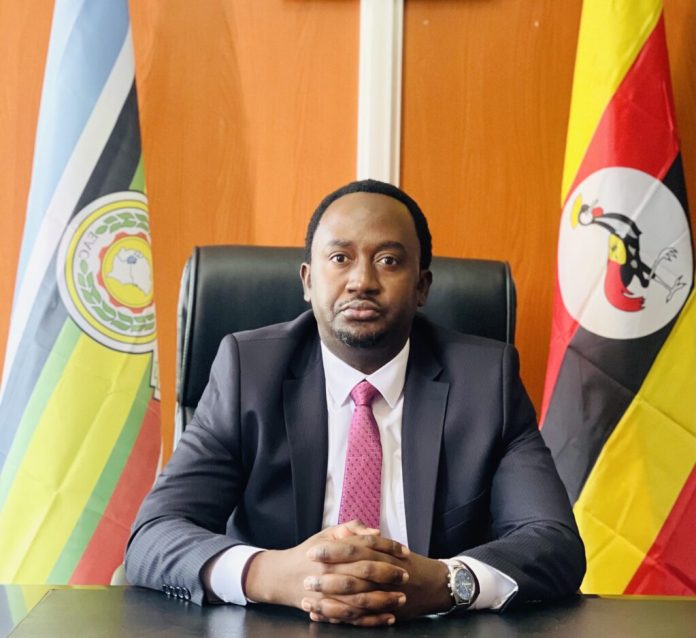
Crispy Kaheru, a champion and defender of Human Rights and a long time election observer, brings attention to critical issues in polling station accessibility in Uganda, shedding light on barriers that hinder voters with disabilities. He observes that while many polling stations are situated in generally accessible areas, they often lack crucial voting materials such as braille ballots and large print guides. “This deficiency limits the independence of visually impaired voters,” Kaheru says. “Without these materials, they often need assistance, which undermines their ability to vote autonomously.”
Kaheru highlights the difficulties faced by voters with hearing impairments as well. “They struggle to communicate with election officials and access necessary information about the voting process,” he explains. In rural areas, the situation is compounded by limited infrastructure and resources. “Voters with disabilities are inadequately accommodated,” Kaheru adds. “Similarly, in densely populated urban areas, overcrowded polling stations further hinder their ability to navigate the voting process.”
Despite some progress in introducing accessible election materials, such as large print guides, Kaheru points out that these are not consistently available at all polling stations. “The lack of consistency in providing accessible materials remains a significant issue,” he notes
Rusoke also highlights the communication structures established across regions and police stations. “If a citizen, including a PWD, experiences any infringement on their rights, they are encouraged to report it at the nearest police station,” he notes. For the deaf community, sign language interpreters are available at the regional level to assist with communication. However, the effectiveness and reach of these structures remain areas of concern.
Reiterating the police’s commitment to equality, Rusoke affirms, “We provide equal service to everyone, without discrimination.” While the police’s dedication to fairness is evident, the implementation and impact of these measures on PWDs warrant ongoing scrutiny to ensure they fully address the needs of all community members.
“As the 2026 elections approach, the voices of people with disabilities grow louder, demanding the rights and accessibility that have long been promised. The question remains: Will the authorities act to ensure these citizens are not left behind, or will the cycle of exclusion continue? The urgency for change is now—before another election passes them by.”
As the country moves forward, it is crucial that the rights of all citizens, regardless of their abilities, are respected and upheld, ensuring that everyone has an equal opportunity to participate in the democratic process.
“As demonstrated by Rwanda’s National Electoral Commission and Kenya’s IEBC, inclusive electoral measures are both possible and essential. The introduction of braille ballot papers, sign language interpreters at polling stations, and mobile applications like Assist All show that with the right commitment, every citizen can participate fully in the electoral process. As the 2026 elections approach, it is imperative that similar initiatives be adopted elsewhere, ensuring that people with disabilities are not only counted but truly heard.”
BACKGROUND
Ugandan is a landlocked country in East Africa,boarded by Kenya in the east, Democratic Republic of Congo by the west,to the north by south Sudan,to the South -west by Rwanda.Ugandan population as of 2024 is as 49.9 million people.The Uganda Bureau Of Statistics Census Report (UBOS 2016) indicated that 12.4%(13%) of the Ugandan population lives with some form of Disability implying that about 4.5milion people are persons with disabilities in Uganda.
This story is published with support from African Institute for Investigative Journalism


















